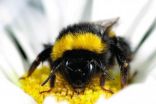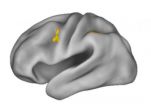(Press-News.org) Diseases that are common in managed honeybee colonies are now widespread in the UK's wild bumblebees, according to research published in Nature. The study suggests that some diseases are being driven into wild bumblebee populations from managed honeybees.
Dr Matthias Fürst and Professor Mark Brown from Royal Holloway University of London (who worked in collaboration with Dr Dino McMahon and Professor Robert Paxton at Queen's University Belfast, and Professor Juliet Osborne working at Rothamsted Research and the University of Exeter) say the research provides vital information for beekeepers across the world to ensure honeybee management supports wild bee populations.
Dr Fürst, from the School of Biological Sciences at Royal Holloway, said: "Wild and managed bees are in decline at national and global scales. Given their central role in pollinating wildflowers and crops, it is essential that we understand what lies behind these declines. Our results suggest that emerging diseases, spread from managed bees, may be an important cause of wild bee decline".
This research assessed common honeybee diseases to determine if they could pass from honeybees to bumblebees. It showed that deformed wing virus (DWV) and the fungal parasite Nosema ceranae - both of which have major negative impacts on honeybee health - can infect worker bumblebees and, in the case of DWV, reduce their lifespan.
Honeybees and bumblebees were then collected from 26 sites across the UK and screened for the presence of the parasites. Both parasites were widespread in bumblebees and honeybees across the UK.
Dr Fürst explained: "One of the novel aspects of our study is that we show that deformed wing virus, which is one of the main causes of honeybee deaths worldwide, is not only broadly present in bumblebees, but is actually replicating inside them. This means that it is acting as a real disease; they are not just carriers."
The researchers also looked at how the diseases spread and studied genetic similarities between DWV in different pollinator populations. Three factors suggest that honeybees are spreading the parasites into wild bumblebees: honeybees have higher background levels of the virus and the fungus than bumblebees; bumblebee infection is predicted by patterns of honeybee infection; and honeybees and bumblebees at the same sites share genetic strains of DWV.
"We have known for a long time that parasites are behind declines in honeybees," said Professor Brown. "What our data show is that these same pathogens are circulating widely across our wild and managed pollinators. Infected honeybees can leave traces of disease, like a fungal spore or virus particle, on the flowers that they visit and these may then infect wild bees."
While recent studies have provided anecdotal reports of the presence of honeybee parasites in other pollinators, this is the first study to determine the epidemiology of these parasites across the landscape. The results suggest an urgent need for management recommendations to reduce the threat of emerging diseases to our wild and managed bees.
Professor Brown added: "National societies and agencies, both in the UK and globally, currently manage so-called honeybee diseases on the basis that they are a threat only to honeybees. While they are doing great work, our research shows that this premise is not true, and that the picture is much more complex. Policies to manage these diseases need to take into account threats to wild pollinators and be designed to reduce the impact of these diseases not just on managed honeybees, but on our wild bumblebees too."
INFORMATION:
This study is part of the Insect Pollinators Initiative, joint-funded by the Biotechnology and Biological Sciences Research Council (BBSRC), Defra, the Natural Environment Research Council (NERC), the Scottish Government and the Wellcome Trust. It is managed under the auspices of the Living with Environmental Change (LWEC) partnership.
Managed honeybees linked to new diseases in wild bees
2014-02-19
ELSE PRESS RELEASES FROM THIS DATE:
Gene sequencing project discovers common driver of a childhood brain tumor
2014-02-19
(MEMPHIS, Tenn. – February 19, 2014) The St. Jude Children's Research Hospital-Washington University Pediatric Cancer Genome Project has identified the most common genetic alteration ever reported in the brain tumor ependymoma and evidence that the alteration drives tumor development. The research appears February 19 as an advanced online publication in the scientific journal Nature.
The results provide a foundation for new research to improve diagnosis and treatment of ependymoma, the third most common brain tumor in children. St. Jude has begun work to translate the ...
Managing chronic bone and joint pain
2014-02-19
ROSEMONT, Ill.—Musculoskeletal pain of the bone, joint and muscles is one of the most common reasons for primary care visits in the United States. According to a literature review appearing in a recent issue of the Journal of the American Academy of Orthopaedic Surgeons (JAAOS), chronic pain, or pain that persists beyond an expected period of healing, is estimated to affect 100 million Americans.
The majority of chronic pain complaints concern the musculoskeletal system, but they also include headaches and abdominal pain. "As orthopaedic surgeons, we are experts in the ...
Blood pressure medications given right after stroke not beneficial, study finds
2014-02-19
MAYWOOD, IL – A major study has found that giving stroke patients medications to lower their blood pressure during the first 48 hours after a stroke does not reduce the likelihood of death or major disability.
The study is published in the Journal of the American Medical Association.
At least 25 percent of the population has high blood pressure, which greatly increases the risk of stroke. Lowering blood pressure has been shown to reduce the risk of stroke. The study investigated whether there also would be a benefit to lowering blood pressure immediately after a stroke.
The ...
Reasons for becoming self-employed in later life vary by gender, culture
2014-02-19
COLUMBIA, Mo. – Self-employment can allow older workers to stay in the labor market longer and earn additional income, yet little research has addressed if reasons for self-employment vary across gender and culture. Now, University of Missouri researchers have studied factors that contribute to self-employment and found these factors differ for men and women in the United States and New Zealand.
"Gender is one of the most enduring social factors in the U.S. and New Zealand, a fact that is particularly evident in differing economic opportunities for men and women and their ...
Newly developed chemical restores light perception to blind mice
2014-02-19
Progressive degeneration of photoreceptors—the rods and cones of the eyes—causes blinding diseases such as retinitis pigmentosa and age-related macular degeneration. While there are currently no available treatments to reverse this degeneration, a newly developed compound allows other cells in the eye to act like photoreceptors. As described in a study appearing in the February 19 issue of the Cell Press journal Neuron, the compound may be a potential drug candidate for treating patients suffering from degenerative retinal disorders.
The retina has three layers of nerve ...
Study reveals workings of working memory
2014-02-19
PROVIDENCE, R.I. [Brown University] — Keep this in mind: Scientists say they've learned how your brain plucks information out of working memory when you decide to act.
Say you're a busy mom trying to wrap up a work call now that you've arrived home. While you converse on your Bluetooth headset, one kid begs for an unspecified snack, another asks where his homework project has gone, and just then an urgent e-mail from your boss buzzes the phone in your purse. During the call's last few minutes these urgent requests — snack, homework, boss — wait in your working memory. ...
New sitting risk: Disability after 60
2014-02-19
CHICAGO --- If you're 60 and older, every additional hour a day you spend sitting is linked to doubling the risk of being disabled -- regardless of how much moderate exercise you get, reports a new Northwestern Medicine® study.
The study is the first to show sedentary behavior is its own risk factor for disability, separate from lack of moderate vigorous physical activity. In fact, sedentary behavior is almost as strong a risk factor for disability as lack of moderate exercise.
If there are two 65-year-old women, one sedentary for 12 hours a day and another sedentary ...
Scientists identify the switch that says it's time to sleep
2014-02-19
The switch in the brain that sends us off to sleep has been identified by researchers at Oxford University's Centre for Neural Circuits and Behaviour in a study in fruit flies.
The switch works by regulating the activity of a handful of sleep-promoting nerve cells, or neurons, in the brain. The neurons fire when we're tired and need sleep, and dampen down when we're fully rested.
'When you're tired, these neurons in the brain shout loud and they send you to sleep,' says Professor Gero Miesenböck of Oxford University, in whose laboratory the new research was performed.
Although ...
Study finds potential solution for feeding, swallowing difficulties in children with autism
2014-02-19
WASHINGTON (Feb. 19, 2014) — Collaborative research out of the George Washington University (GW) reveals new information on the pathogenesis of feeding and swallowing difficulties often found in children with neurodevelopmental disorders, including autism and intellectual disability. Using an animal model of DiGeorge/22q11 Deletion Syndrome, a genetic disorder that causes autism and intellectual disability, the GW group found clear signs of early feeding and swallowing disruption, and underlying changes in brain development. The research, featured on the cover of Disease ...
U of I study: Couples, pay attention to your relationship work ethic
2014-02-19
URBANA, Ill. – Is a date with your partner as important to you as a meeting at work? A University of Illinois study recommends that couples develop a relationship work ethic that rivals—or at least equals—their professional work ethic.
"When people enter the workplace, they make an effort to arrive on time, be productive throughout the day, listen attentively to co-workers and supervisors, try to get along with others, and dress and groom themselves to make a good impression," said Jill R. Bowers, a researcher in the U of I's Department of Human and Community Development. ...



